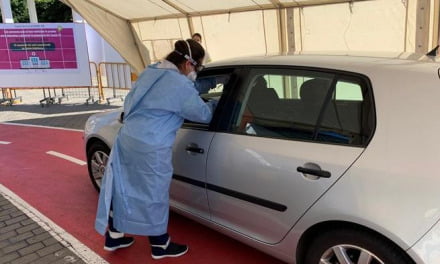The Association of self-employed workers (La Federación Nacional de Trabajadores Autónomos, ATA) has complained about the rise in the Social Security contributions rate for 2020, which was applied from October after having been postponed back when the pandemic began.
“The Ministry has been insensitive to the self-employed”, the president of ATA, Lorenzo Amor, declared this Monday saying that the rate hike applied “has punished 3.2 million self-employed.”
Amor stressed that “now is not the time to carry out quota increases as a result of a pact agreed in 2018, when the economy was growing at 3% and when it was impossible to foresee that it would currently be falling by 12%. Freelancers don’t deserve this treatment”.
Social Security sources have explained that this rise in the contribution rates of the special regime for self-employed workers (RETA) was contemplated in an agreement reached between the Government and self-employed organisations back in 2018.
By virtue of this pact, which established greater protection for this group pending a reform of the RETA, the contribution rate was progressively raised over four years, from 30% in 2019 to 31% in 2022.
Last October there was an increase in contribution rates of three tenths, going from 0.7% to 0.8% for any cessation of activity and from 0.9% to 1.1% for professional contingencies, adding to the existing contingencies rate (28.3%) this has raised the total contribution rate to 30.3%.
According to the Ministry for Social Security, this rise represents an increase of €3 per month for most self-employed people, while, according to the ATA, it will raise the quota paid by the self-employed in September by between €6 and €24.
To this will be added, over the next few months, the rise corresponding to 2021, with the rate of contribution for cessation of activity rising one tenth, to 0.9%, and the professional contingencies rate by 0,2%, to 1.3%, reaching a total applicable rate of 30.6%.
There is a Government RETA reform on the table to charge self-employed people Social Security on the basis of their actual income, being negotiated with the social agents, but opinion among the self-employed seems quite divided.
ATA say that, according to their members’ barometer data, 43.9% of self-employed respondents are in favour of contributing based on real income and 35.9% are against the move, while 20.2% do not know or have not responded.
28.8% declare having suffered losses of more than € 30,000
With less than a month till Christmas, and night curfews in place across much of Spain, with lock down confinements, regional closures and considerable restrictions on hotels, leisure and commerce, the ATA barometer responses are a reflection of the extremely complicated situation that self employed people are going through this year. The self-employed have lost an estimated €60 billion so far throughout the pandemic. 28.8% of the self-employed people surveyed by ATA state that they have suffered losses of more than €30,000.
DOWNLOAD THE FULL BAROMETER HERE (In Spanish)
SITUATION OF YOUR BUSINESS CURRENTLY
Given the uncertainty the ATA are working to explore the real situation of self-employed workers and their activities at a time when practically every regional autonomous community in Spain have implemented restrictive measures on activities that directly affect the self-employed, such as hospitality and trade.
 Currently, say the association, three out of four freelancers have some kind of restrictions on their business. Around 20% of the more than 2,000 self-employed members who were surveyed, 19.3% specifically, have their businesses and/or activities completely closed at the moment, which, according to the ATA, could be extrapolated to almost 620,000 self-employed people throughout Spain. 4.1% of respondents claim to have been closed for business since last March. (Table 1). 56.5% say they have opened for business, but that they are working at 50% capacity.
Currently, say the association, three out of four freelancers have some kind of restrictions on their business. Around 20% of the more than 2,000 self-employed members who were surveyed, 19.3% specifically, have their businesses and/or activities completely closed at the moment, which, according to the ATA, could be extrapolated to almost 620,000 self-employed people throughout Spain. 4.1% of respondents claim to have been closed for business since last March. (Table 1). 56.5% say they have opened for business, but that they are working at 50% capacity.
Only 15.7% of the self-employed surveyed by ATA say that they are open and functioning normally and 3% even admit that they are doing even better than before the pandemic.

The results point to (table 2) an overwhelming 84.9% of self-employed people having seen a reduction in their turnover compared to the previous year and for half of them, the fall has been more than 60% (graph 2). 9.7% say that turnover has been maintained and 3.2% say that their turnover has increased despite everything.

The estimated loss for the self-employed in 2020 could stand at more than €60 billion. 28.8% of those surveyed say that their losses will exceed 30,000€, (Table 14) mainly in the events industry, entertainment (children ‘s entertainment, nightclubs, cultural and and other show) and to a lesser extent, the commerce sector.
11.1% of the self-employed who responded say they have made no losses this year.











